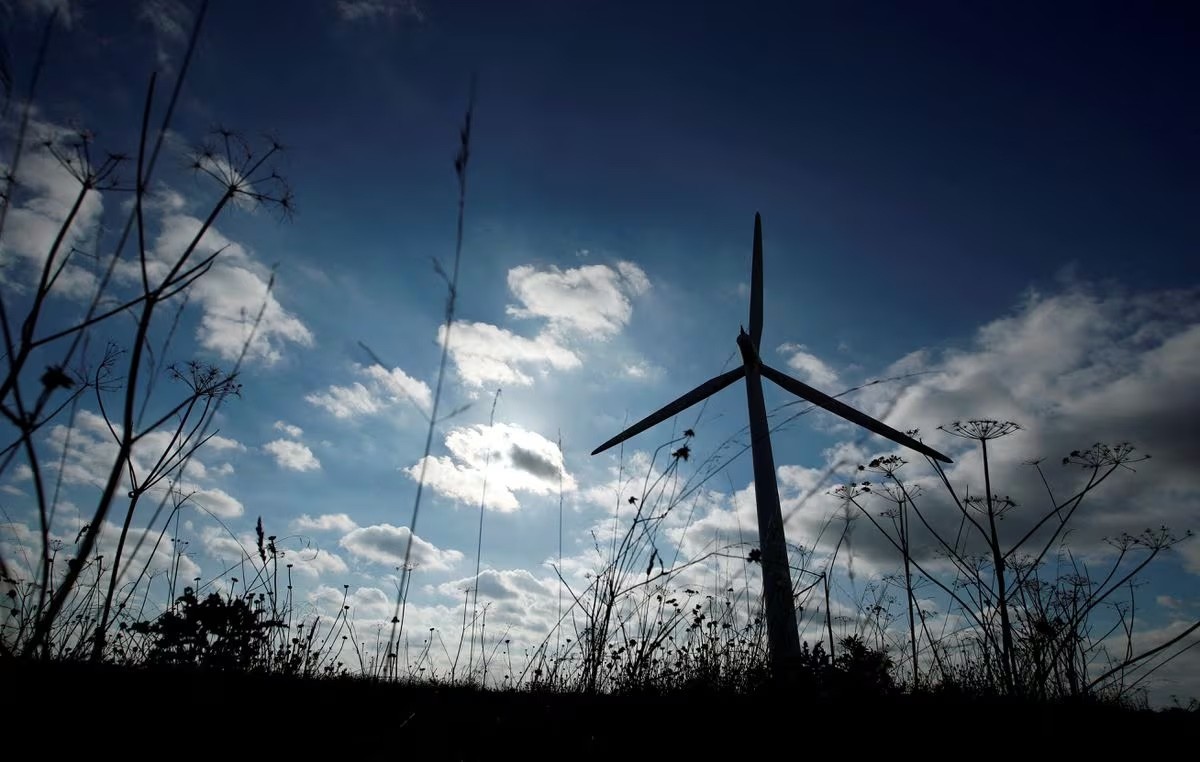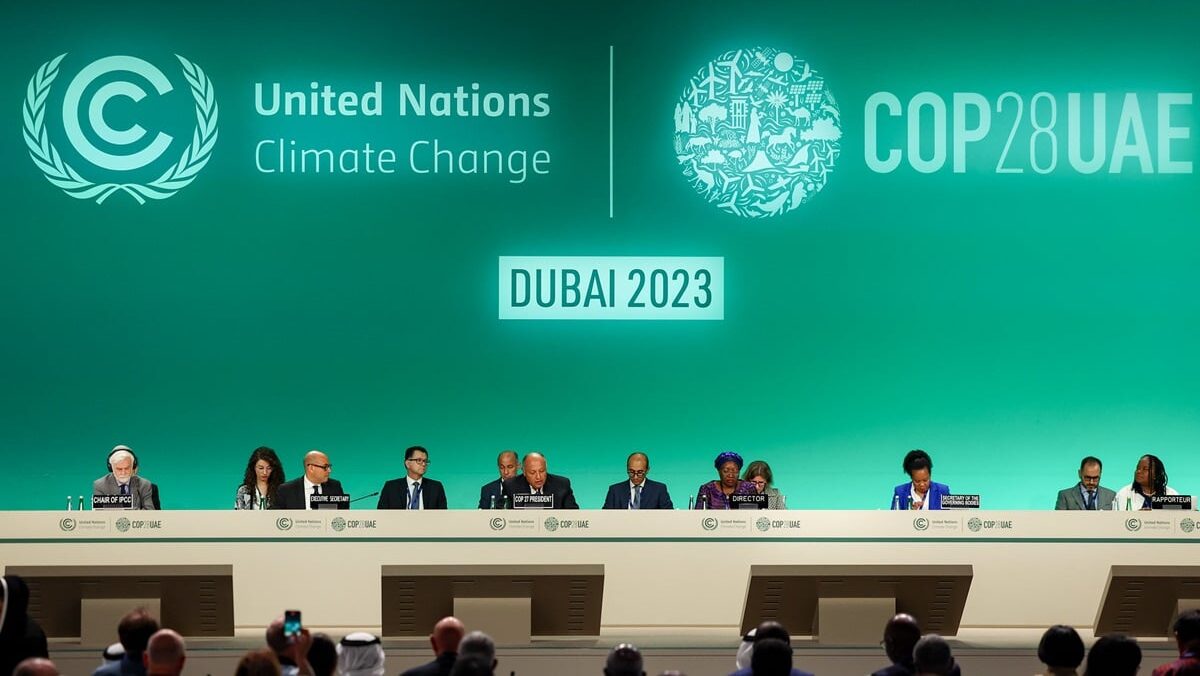The Global Renewable Energy and Energy Efficiency Commitment announced by COP28 President Sultan Al Jaber on the third day of the COP28 Climate Summit aims to triple the pace of energy efficiency by 2030 to achieve 1.5C.
Taking into account different starting points and national circumstances, 118 countries committed to work together to increase the world’s existing renewable energy generation capacity to at least 11,000 GW by 2030. They also committed to double the global average annual rate of increase in energy efficiency every year until 2030.
Countries with fossil fuel-based energy systems such as the US, Australia, Brazil, Poland and Mexico signed the declaration, while China, India and Turkey did not.
‣ [COP28] Renewable energy, new financial contributions on the agenda on the third day of the summit

Fotoğraf: Andrew Boyers /Reuters
‘Turkey should have signed’
Ümit Şahin, Climate Change Coordinator at Sabancı University Istanbul Policy Center, states that Turkey had two positions at COP28:
“First, it declared its opposition to fossil fuel reduction and fossil fuel phase-out as part of the Global Stocktake and did not join the Coal Phase-out Coalition, which the US announced that it participated in.
Secondly, we did not see Turkey among the 118 countries that committed to tripling global renewable capacity, whereas even Azerbaijan and some Gulf countries have signed up to this commitment. Moreover, in Turkey’s National Energy Plan published last year, the target to increase solar and wind is already close to tripling, so Turkey should have signed this declaration.”
‣ [[COP28] Seven countries, including the US, join ‘post-coal clean energy alliance’

‘Turkey can easily achieve the targets’
Highlighting that the global targets are already in line with Turkey’s National Energy Plan and that Turkey can easily reach these targets, Volkan Yiğit, Co-Founder of A Plus Energy, says the following:
“In the National Energy Plan, we aim to increase our solar capacity, which is currently 11.2 GW, to 53 GW by the end of 2035, almost 5 times. Although not as high on the wind side, we plan to increase our 11.6 GW capacity to 29 GW in 2035. This means a 2.5-fold increase. When we look at the sum of both targets, we are already planning to increase our solar and wind installed capacity by 3.6 times in 2035.”
In the coming years, Turkey can sign an enhanced version of this global commitment and the National Energy Plan is in line with this, Yiğit continues.
“The reason why Turkey is not a signatory should be the phrase ‘phasing out coal plants’ in the commitment, because Turkey wants to keep all coal plants open until the end of their economic life. In fact, we should leave it to the market; our projections within the framework of market conditions, carbon pricing, different commitments and requirements show that the share of coal power plants in generation will gradually decrease every year. Economic and technological conditions, the end of domestic coal in Turkey, the difficulty of entering new coal fields, and the decrease in coal financing will lead us to this commitment.”
‣ [COP28] Erdoğan praises ‘mitigation from increase’ targets at climate summit

‘Turkey’s short and medium-term goals are not compatible with 2053 targets’
Bengisu Özenç, Director of the Sustainable Economy and Finance Research Association, points out that Turkey’s 2053 net-zero target announced in 2021 is a positive start, but short and medium-term targets are not yet in line with the 2053 target:
“Turkey says it will maintain the status quo for the next 10-15 years. However, we have the capacity to do much more. We are a country that tripled its solar installation targets announced in 2017 in just five years. Turkey should aim to both play a more constructive role in climate diplomacy and take a more facilitative position in achieving the 2053 net-zero target.”

Fotoğraf: Kamran Jebreili / AP
‣ [COP28] Pope Francis’ call: Fossil fuels must end
‘Turkey’s stance is not consistent’
Yusuf Bahadır Turhan, Chairman of the Board of Directors of the Solar 3GW Association, believes that an exit from coal is essential for the 2053 Net Carbon Zero, energy independence and continuous cheap electricity targets, but Turkey’s stance at COP28 is not consistent with these targets.
“In the light of recent developments, Turkey’s solar and wind energy potential provides a significant advantage,” Turhan said, adding that “any move that delays our exit from fossil fuels will cause us to underutilize our sun and fall behind economically.”
Ember Türkiye, Ukraine and Western Balkans Regional Leader Ufuk Alparslan says that this decision pits the two poles of the world against each other in terms of emission reductions and that Turkey’s failure to sign the declaration is political, even though official plans have announced targets close to the declaration.















Comments